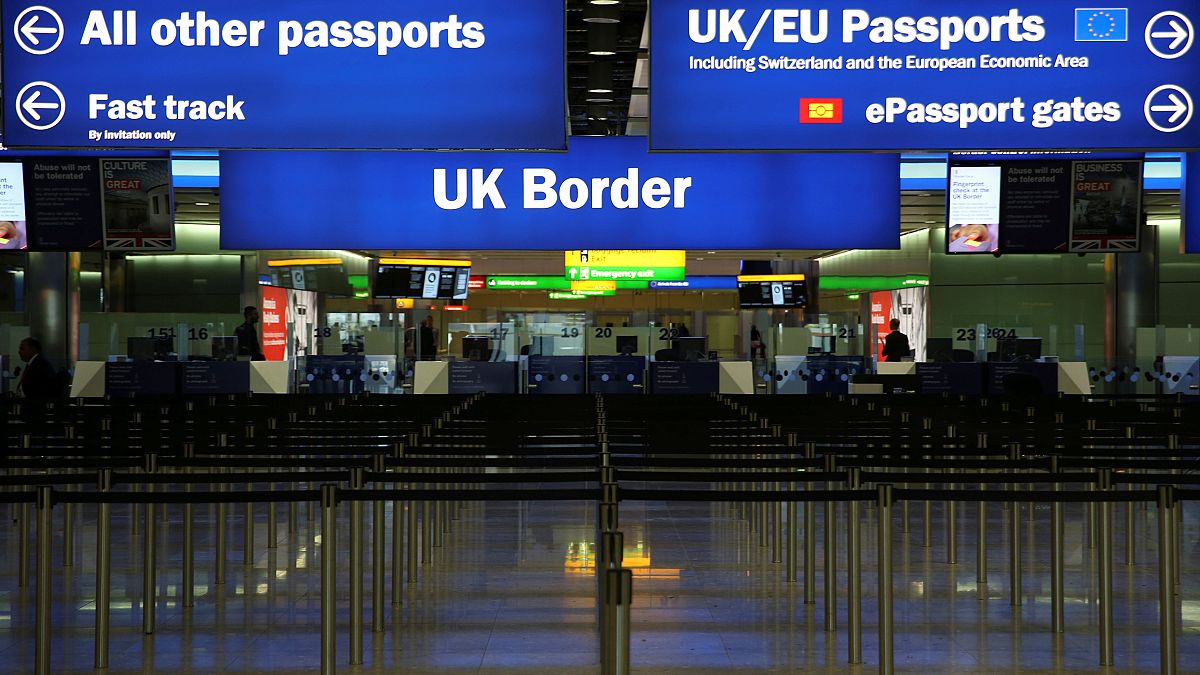Immigration minister Brandon Lewis appears to contradict cabinet colleagues by saying free movement will end when the UK leaves the EU in 2019.
There was some confusion over the UK government’s post-Brexit immigration policy on Thursday after a minister said categorically that freedom of movement from the EU would end when Britain left the bloc.
The comments by Home Office Minister Brandon Lewis appeared to contradict recent reports suggesting that under a transitional deal the UK is likely to seek in negotiations, EU nationals would continue to be able to come to live and work in the country freely for some time after Brexit.
The tone also appeared to be different from that of Lewis’ boss Amber Rudd, the Home Secretary (interior minister) writing in the Financial Times on Thursday that she wanted “to reassure businesses and EU nationals that we will ensure there is no ‘cliff edge’ once we leave the bloc”. Her comments were interpreted by the paper as a promise to keep the “door open for EU workers after Brexit”.
Both ministers have said that the UK wants to welcome skilled migrants but will apply its own immigration rules after the country leaves the European Union.
“Free movement of labour ends when we leave the European Union in the spring of 2019. I’ll be very clear about that,” the immigration minister Brandon Lewis told BBC Radio on Thursday.
“We’re very clear that free movement ends. It’s part of the four key principles of the European Union. When we leave, it therefore – by definition – ends,” he emphasised.
Immigration Minister Brandon Lewis says free movement of labour to end in March 2019 #r4today#Brexitpic.twitter.com/ROLWRZZTYr
— BBC Radio 4 Today (@BBCr4today) July 27, 2017
The minister added that more details of the new immigration policy would be provided in a white paper later this year. The Home Secretary Amber Rudd said later that an “implementation phase” would involve new EU workers registering their details upon arrival in the UK.
Recent media reports had implied that the government was willing to allow freedom of movement for perhaps a few years during a transitional period following Brexit.
“As we leave the EU we will have an implementation period which will ensure we can continue to have not just access to labour but the economic stability and certainty which business requests,” the environment minister and staunch Brexit supporter Michael Gove was quoted as saying last week, when asked about a free movement extension.
The Guardian also reported a “senior cabinet source” as saying ministers now accepted that free movement of people from the EU would continue for up to four years as part of a transition deal.
The UK government has also announced a major study will be carried out into the costs and benefits of European migrants to the economy. The home secretary has said the independent Migration Advisory Committee’s work will complement the government’s own soundings from businesses, unions and other interested parties.
The study – whose results will not be reported until September 2018 – comes at least a year too late, according to reaction from industry and government opposition sources.
The Foreign Secretary Boris Johnson told reporters during his visit to Australia on Thursday that he had not seen the study they mentioned.
By setting March 2019 as the moment free movement will end, Brandon Lewis is contradicting Amber Rudd in today’s
FT</a> <a href="https://t.co/rlJp5JuBUs">https://t.co/rlJp5JuBUs</a> <a href="https://t.co/epTadn56Ws">pic.twitter.com/epTadn56Ws</a></p>— Sebastian Payne (SebastianEPayne) July 27, 2017
Prime Minister Theresa May – currently away on holiday – has on numerous occasions appeared to favour strict curbs on EU immigration after Brexit, interpreting the vote in last year’s referendum as a preference to control the UK’s borders over maintaining access to European markets if that meant having to adhere to the EU’s principle of free movement.
However the past month has seen increased pressure from many in business and industry for the government to ensure no sudden shortage of labour from Europe once Brexit happens, and to end uncertainty over the matter as soon as possible.
Some pro-Brexit cabinet ministers, previously said to be hostile to maintaining EU rules after the UK leaves the bloc, have more recently been reported to have softened their stance.
The ruling Conservative Party has long said it aims to reduce annual net migration to the UK to the “tens of thousands”, from current figures running into six figures.
